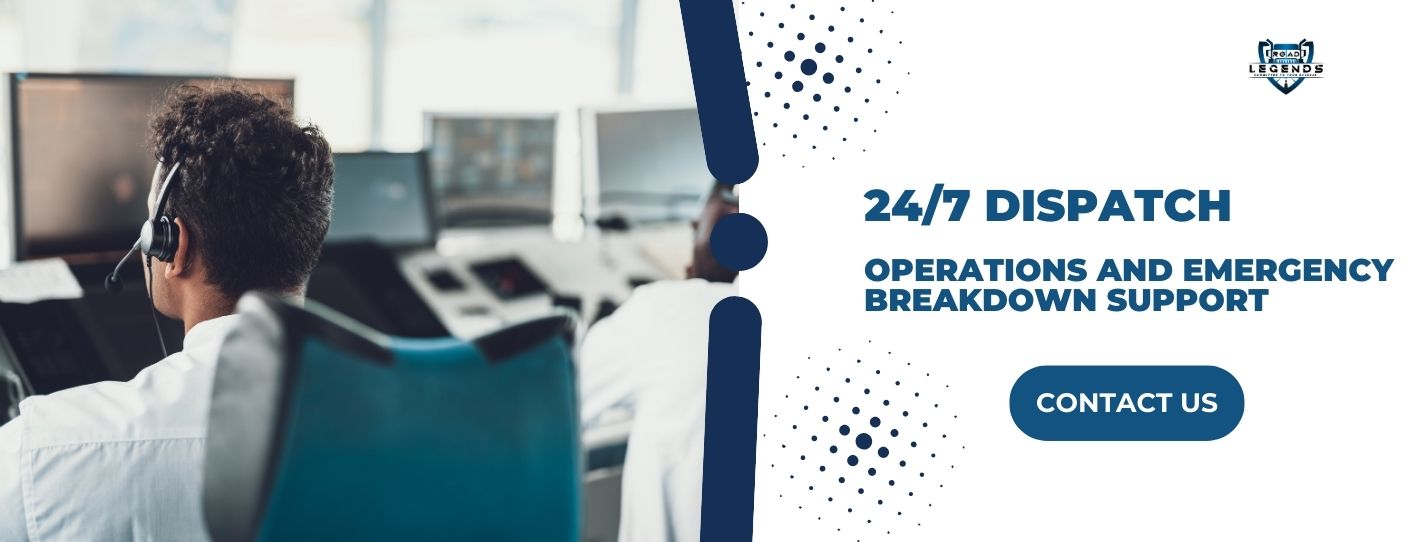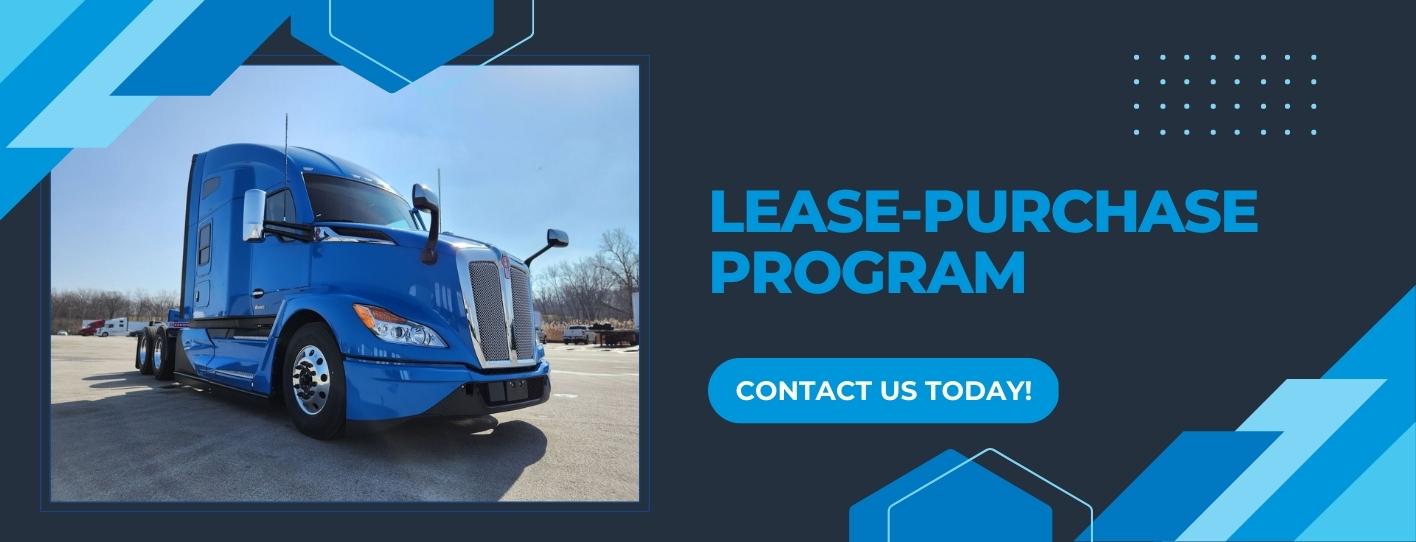
Addressing the Truck Driver Shortage with 4 GPS Fleet Tracking Solutions
In recent years, the transportation and logistics industry has faced a significant truck driver shortage. With fewer drivers to transport goods, we're seeing delays and disruptions that impact nearly every part of the supply chain.
On one hand, we're seeing a generation of experienced drivers hang up their keys, while younger generations are opting for careers outside of trucking. At the same time, rules and regulations have grown tighter, and a booming demand for shipping has left us with more freight than drivers to haul it.
Fortunately, GPS fleet tracking technology may provide innovative and practical solutions to some of these biggest challenges. GPS tracking devices do much more than just pinpoint locations on a map; they work around the clock to make operations smoother, and more efficient and even help tackle the truck driver shortage crisis.
The truck driver shortage: understanding the magnitude
The transportation field is the lifeblood of our economy, ensuring the seamless flow of goods and commodities. Central to this ecosystem are truck drivers, ensuring timely deliveries and keeping businesses running smoothly. However, the truck driver shortage crisis has created some major problems.
According to the American Trucking Associations (ATA), the trucking world faced a shortage of approximately 60,000 drivers by the end of 2019, a number predicted to double in the coming decade if these issues persist.
Several factors, both longstanding and emergent, contribute to this significant shortage:
- Retirement: As a large number of seasoned drivers retire, there's a notable absence of younger drivers filling these vacancies.
- High turnover: The trucking profession, while rewarding, can be grueling. Long hours on the road, extended periods away from family, and the physical demands of the job contribute to a high turnover rate.
- Gender bias: While the trucking industry has traditionally been male-dominated, there is a growing need to diversify the workforce and make it more inclusive for women. Some may be discouraged from pursuing a career in trucking due to perceived or actual harassment, or discrimination.
- Stringent regulations: Over the years, regulatory bodies have tightened rules surrounding driving hours, rest periods, and licensing requirements. While these measures aim to enhance road safety, they've also made it challenging for many potential drivers to enter or stay in the profession.
- Changing career aspirations: The younger generation, enticed by the allure of tech-driven professions and more stable work environments, often overlook trucking as a viable career path.
The potential impact on the logistics and transportation industry
The effects of the truck driver shortage aren't confined to empty driver seats. It impacts the entire logistics chain:
- Increased transportation costs: A truck driver shortage can lead to elevated wage demands, translating to higher transportation costs for companies. This can, in turn, lead to increased product prices for end consumers.
- Delayed deliveries: With fewer drivers on the road, the timely movement of goods becomes a challenge, leading to potential supply chain bottlenecks and delayed deliveries.
- Strained business relations: Regular delays and inconsistencies in delivery can strain relationships between businesses and their clients or partners.
- Operational inefficiencies: Companies may find themselves overcompensating for the truck driver shortage, leading to inefficient fleet utilization, increased idle times, and higher operational costs.
In summary, the truck driver shortage isn't a localized problem; it's a significant industry-wide challenge with repercussions that touch businesses, consumers, and the broader economy. Recognizing the magnitude of this crisis is the first step toward formulating effective, technology-driven solutions.
GPS fleet vehicle tracking device: a brief overview
One technological advancement that has revolutionized fleet management is GPS fleet vehicle tracking. These sophisticated devices leverage GPS to equip fleet managers with the insights they need to make informed decisions about their operations. Let's examine how these devices can benefit fleets of all sizes.
What is a "GPS fleet vehicle tracking device"?
A GPS Fleet Vehicle Tracking Device utilizes the Global Positioning System (GPS) to monitor the whereabouts and activities of vehicles within a fleet in real-time. Once installed in vehicles, these devices capture, process, and transmit crucial data, offering fleet managers an eagle's eye view of their operations.
Core functions and features of modern GPS fleet tracking solutions
- Real-time vehicle monitoring: Fleet managers can access real-time data about a vehicle's location, direction, speed, and more, ensuring optimal oversight.
- Route optimization: By analyzing real-time traffic data and other factors, these systems can suggest the most efficient routes, reducing drive times and fuel consumption.
- Historical data analysis: Access to historical data allows companies to identify trends, improve route planning, and optimize fleet operations.
- Maintenance alerts: Advanced systems can monitor vehicle health and send alerts for scheduled maintenance or detected issues, minimizing downtimes.
- Safety monitoring: By keeping tabs on driving patterns, these devices can identify risky behaviors like sudden braking or speeding, helping promote safer driving habits.
- Geo-fencing: This feature allows companies to set virtual boundaries and receive alerts when vehicles enter or exit these predefined zones, enhancing security and operational efficiency.
How GPS fleet tracking addresses the truck driver shortage
The trucking industry is at a crossroads. The growing truck driver shortage presents both a challenge and an opportunity to rethink operations. GPS fleet tracking can, in this light, become a transformative tool that not only improves existing processes but also addresses some root causes of the driver deficit.
1. Enhanced efficiency and route optimization
Navigating the complexities of logistics requires a keen eye for efficiency and a strategic approach to route planning. In an industry where time is of the essence, optimizing each journey is essential. The integration of GPS fleet tracking technology can revolutionize the way companies manage their vehicle routes and overall efficiency.
Reduction in drive times through optimal route selection
One of the primary advantages of GPS fleet tracking is the ability to calculate and recommend the most efficient routes in real-time. This not only reduces fuel consumption but also ensures timely deliveries, minimizing the time drivers spend on the road.
Efficient workload distribution among available drivers
By having a clear and real-time overview of where each vehicle in the fleet is, companies can effectively distribute workloads. This ensures that no driver is overburdened, while others remain idle, maximizing the utility of every available driver.
2. Improved driver safety and satisfaction
Ensuring the safety and satisfaction of truck drivers can easily help with retention. Their well-being directly impacts the efficiency and reliability of fleet operations. In this section, we will explore the ways GPS fleet tracking technology can significantly enhance driver safety and job satisfaction.
Real-time monitoring to ensure drivers' well-being
With the help of GPS tracking, fleet managers can keep tabs on their drivers, ensuring they take necessary breaks and aren’t driving for extended periods. This monitoring promotes driver health and well-being.
Systems that assist drivers in navigating and avoiding hazardous conditions
Modern GPS systems do more than just point out directions. They can provide real-time weather updates, hazard warnings, and road closure information, allowing drivers to adjust their routes and drive more safely.
Feedback mechanisms that enhance driver performance and job satisfaction
A well-integrated GPS system can offer feedback on driving habits, allowing drivers to improve and optimize their performance. Recognizing and rewarding good driving habits can lead to greater job satisfaction and motivation.
3. Streamlined recruitment and training
As the transportation industry evolves, the methods of recruiting and training drivers must also adapt. Finding and preparing the right individuals for the demanding role of a truck driver is a critical component of a company's success. In this section, we'll delve into how GPS fleet tracking technology is revolutionizing the recruitment and training processes, making them more streamlined, efficient, and effective in building a team of skilled and reliable drivers.
Using data to identify potential recruitment zones
GPS tracking systems store vast amounts of data, which, when analyzed, can highlight areas where drivers frequently halt or take breaks. These zones can be potential recruitment areas, offering targeted opportunities for hiring.
Training modules integrated with GPS systems to onboard new drivers faster
Onboarding becomes a breeze with GPS systems. New drivers can be trained using the same interface they will use on the job, ensuring consistency and faster acclimatization to company operations.
4. Compliance and regulation management
With ever-evolving rules and stringent requirements, ensuring compliance can be a complex task. In this section, we will delve into the crucial role that GPS fleet tracking technology plays in simplifying compliance and regulation management, ensuring that fleet operations are not just efficient, but in line with legal standards and industry best practices.
Logs and reports ensuring adherence to transportation regulation
One of the significant challenges for drivers is maintaining accurate logs. GPS fleet tracking automates this process, ensuring that drivers are compliant with regulations without the added paperwork.
Minimized manual record-keeping, reducing errors and administrative time
Digital logs reduce the room for error, ensuring that records are accurate and up-to-date. This not only saves time for drivers but also minimizes administrative burdens, allowing them to focus on their primary task: driving.
Final thoughts
The trucking industry remains a continuously evolving landscape. Challenges like a truck driver shortage are not mere obstacles; they are also opportunities to innovate and pivot toward more sustainable and efficient solutions. At the heart of this transformative journey stands GPS fleet tracking technology. For logistic companies standing at this crossroads, it's not merely about adopting technology, but embracing the future. Advanced GPS tracking solutions are investments in efficiency, sustainable growth, and ultimately, in developing a top-tier roster of employees who are safe, engaged, and in it for the long haul.

The “Hidden” Paycheck: How Fuel & Maintenance Support Shape Real Net Pay
Learn how fuel costs, maintenance planning, and equipment efficiency impact real net pay in trucking and why the “hidden paycheck” matters in lease purchase programs.

Percentage vs. CPM: How to Choose the Right Pay Plan at Road Legends
Learn the difference between percentage pay and CPM in trucking. Understand break-even points, income stability, and how to choose the right pay plan for your driving style.

What Is a Walk-Away Lease in Trucking? The Advantage Most Drivers Miss
Learn what a walk-away lease in trucking is, how it differs from traditional lease purchase programs, and why many CDL-A drivers choose flexibility over long-term debt.


